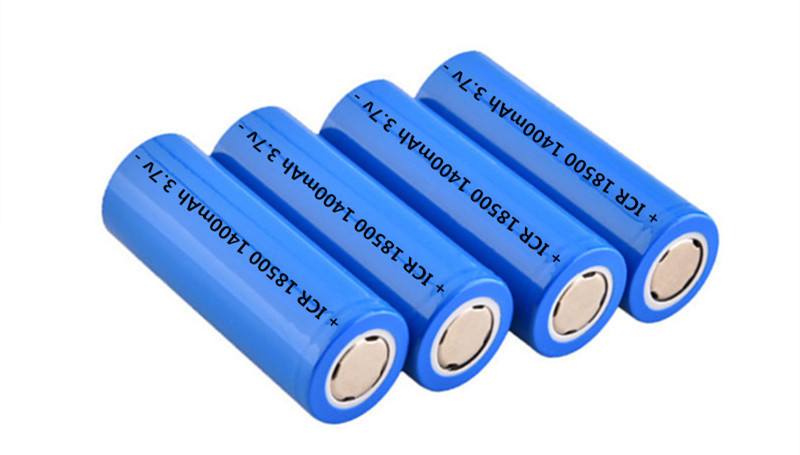What Is Lithium Polymer Battery-Advantages And Applications
May 09, 2020 Pageview:3028
The LiPo batteries or Lithium Polymer batteries differentiates itself from other types of lithium-based batteries with the electrolyte mostly. However, just by changing the electrolyte to polymer state, these batteries have achieved a low profile, flexible form factor, lightweight, and higher specific energy. With so many features and various advantages, the LiPo battery's application has become extensive.
So, today, we will discover why the companies choose Lithium Polymer batteries over other lithium-based batteries and what its applications are.
Why Do You Choose Lithium Polymer Battery?
Now that we know that lithium-polymer batteries have significant prowess over other types of batteries, you must learn why consumers and manufacturers choose them. While lithium-ion batteries are incredibly efficient, they still have some drawbacks. They offer a large amount of energy in a tiny package, but the chemistry of these batteries is inherently unstable. They suffer from aging and can be potentially dangerous if not kept isolated. Even though most of the consumer electronics use Lithium-ion batteries, they require much more attention.
On the other hand, lithium polymer batteries have robustness and flexibility when it comes to shapes and sizes. These batteries are safer than lithium-ion as there is a lower chance of leakage of electrolyte. Though LiPo batteries are costlier, they have a significant advantage over the Lithium-ion batteries.
What Are The Advantages Of Lithium Polymer Battery?
Like we said above, the Lithium Polymer chemistry has many advantages. So, in this section, we will go through the benefits. Once you take a look at the list, it will be easier for you to understand why the Lithium Polymer battery types are used vastly in various fields.
1: Safety Performance:
The first and most remarkable feature of lithium polymer batteries is that they come in composite aluminum packaging, which is very different from the metal case used in other batteries. When the electrolyte in other battery leaks, it often leads to an explosion. However, lithium polymer batteries are safeguarded from that risk. Even if the electrolyte suffers from leakage, it has meteorism that can prevent such explosions.
2: Flexibility of Shape of Size:
Most of the batteries suffer from a major fault, i.e., they can only be manufactured in limited shapes and sizes. But lithium polymer batteries can be made ultra-thin like a credit card. The thickness of the batteries could be less than 1 mm so that it can meet the demand of current Smartphone technology.
Furthermore, the manufacturers can custom design the batteries in any shape as per requirements.
3: Lightweight:
LiPo batteries use polymer electrolytes, which can be infused in the battery without using the metal shell as protective packaging. It is that metal protection layer that increases the weight of the battery around 40%. Unlike other batteries, the LiPo battery with aluminum batteries makes them lightweight.
4: Big Capacity:
A LiPo battery that is of the same size as a steel shell battery can provide 10 to 15% more capacity. That's why they become the top choice for mobile phones so that they can last longer and provide more capacity in a single cycle.
5: Minimal Internal Impedance:
The Lithium polymer batteries have less impedance than any other liquid batteries. In the current domestically available batteries, the internal resistance value is below then 35 m Ohm. It reduces power consumption and extends the standby time of the mobile phone. And due to the large current discharge levels, these batteries have become the most prominent alternative for NiMH batteries.
6: Battery Discharge & Safety:
Due to the gel electrolyte, the LiPo batteries have a smooth discharge rate. And they have less risk of catching fire and explosion. The battery protection circuit design also saves the cost of the battery.
Lithium polymer battery is a superior battery technology that has proven very useful in many applications.
What Are lithium polymer batteries Used For?
After learning about all the compelling advantages of the lithium polymer batteries, it is time that we learn about the applications of these batteries. Due to all the impeccable features these batteries possess, they are used in various industries for a commendable power source.
1: Radio Controlled Equipment & Aircraft:
LiPo batteries are one of the most commonly used battery type in radio-controlled aircraft, cars, and large scale model trains. In all these devices, the lower weight and higher capacity offer precisely what the devices need. The battery packs can be designed with various configurations to achieve the desired output. These batteries are often used to power R/C vehicles, helicopters, and drones.
2: Personal Electronics:
The most prominent application of Lithium Polymer batteries is in personal electronics. Whether it is your mobile phones or laptops, most devices rely on this technology to operate. It is used in portable media players, wireless PC peripherals, wireless controllers, electronic cigarettes, and other devices where small form factor is required.
3: Electric Vehicles:
The technology of lithium polymer battery-powered electric vehicle is still being tested. But some brands have already utilized the technology efficiently. A large-format lithium battery pack is designed to achieve the purpose. Companies like Hyundai and Kia Motors have already implemented this technology in practical use.
Other than the above-explained industries, Lithium polymer batteries are used in other sectors as well. The list includes:
Agriculture such as irrigation and fertilization tools
Automotive Equipment uses such as car stereo, car keys, etc.
Communication such asspecial phones or Bluetooth devices
Industrial use such as timer system, bar code readers, etc.
Medical use such as in insulin pumps, body fat monitors, etc.
Metering system use such as GPS terminals, road toll transponders, etc.
The LiPo batteries are accepted as one of the leading lithium-based battery types worldwide. Hence, it is vital that you learn as much as possible about them. The more you understand how they work and where they are used, it will be easier for you to take care of these batteries.
- Prev Article: How to Prolong Lithium Battery Life-Cycle Life and Charging
- Next Article: What Is Good Internal Resistance Of LiPo Battery
Leave Message
Hottest Categories
-
Hottest Industry News
-
Latest Industry News












